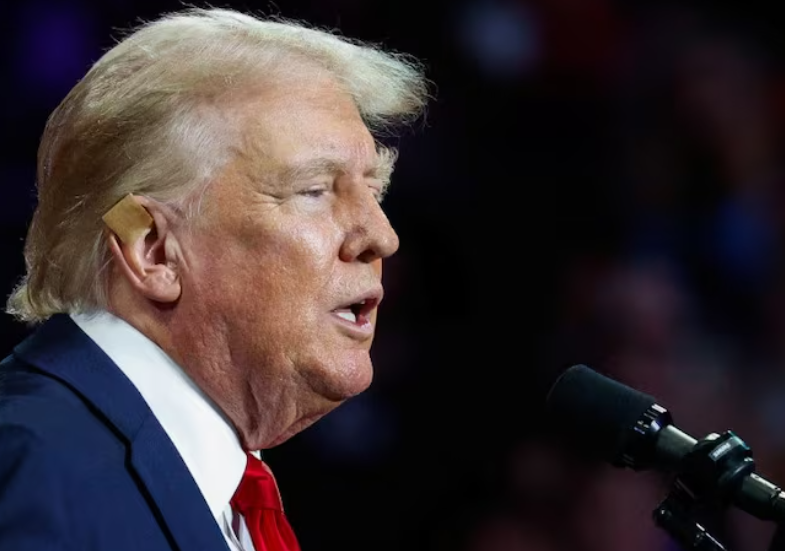A New York judge, for the third time, refused to step aside from the case in which Donald Trump faced conviction on charges related to hush money paid to a porn star. The judge dismissed Trump’s claims of a conflict of interest, which Trump had linked to the political consultancy work of the judge’s daughter.
Justice Juan Merchan, in a decision released on Wednesday, denied Trump’s lawyers’ request for his recusal from the first criminal case involving a former U.S. president. Merchan is scheduled to sentence Trump on September 18.
“Defendant has provided nothing new for this Court to consider. Counsel has merely repeated arguments that this and higher courts have already denied,” Merchan wrote in his August 13 ruling, criticizing the arguments as “rife with inaccuracies and unsubstantiated claims.” A spokesperson for the Manhattan District Attorney’s Office declined to comment on the decision.
Steven Cheung, a spokesperson for Trump’s campaign, stated, “The Highly Conflicted Judge should have long ago recused himself from this case.”
On May 30, a jury found Trump guilty of 34 felony counts of falsifying business records, related to his cover-up of former personal lawyer Michael Cohen’s $130,000 payment to adult film actress Stormy Daniels. The payment aimed to avert a sex scandal before the 2016 U.S. election. In July, Trump’s lawyers made a third request for Merchan to recuse himself, arguing that his daughter’s work for a political consultancy firm, which had counted Democratic campaigns among its clients, posed a conflict of interest. The firm had worked on Kamala Harris’s 2020 presidential campaign.
Harris, now Vice President, is set to face Trump, the Republican nominee, in the November 5 U.S. election. Falsifying business records carries a penalty of up to four years in prison, though others convicted of the crime have often received sentences such as fines or probation.
Prosecutors from Manhattan District Attorney Alvin Bragg’s office, which brought the charges, described Trump’s recusal request as a “frivolous” attempt to relitigate an issue already resolved twice before. “No amount of overheated, hyperbolic rhetoric can cure the fatal defects in defendant’s ongoing effort to impugn the fairness of these proceedings,” prosecutors wrote in an August 1 court filing.
Daniels received the payment in exchange for her silence before the 2016 election about a sexual encounter she claimed to have had with Trump a decade earlier, an encounter Trump denied. Despite this, Trump won the presidency by defeating Democrat Hillary Clinton.
Merchan first rejected a recusal request in April before jury selection and again last year after an ethics panel found that his daughter’s work did not raise reasonable questions about his impartiality. During the trial, Trump used his social media platform to describe Merchan as a “highly conflicted” overseer of a “kangaroo court.” Trump’s pre-trial social media comments, where he claimed that Merchan’s daughter “makes money by working to ‘Get Trump,’” led Merchan to expand a gag order, barring Trump from publicly commenting on family members of court staff or prosecutors.
Separately, Trump’s lawyers have asked the judge to dismiss his conviction, citing a U.S. Supreme Court ruling in July that grants former presidents broad immunity from prosecution for official acts taken while in office. Merchan stated that he will decide on Trump’s arguments by September 16.

